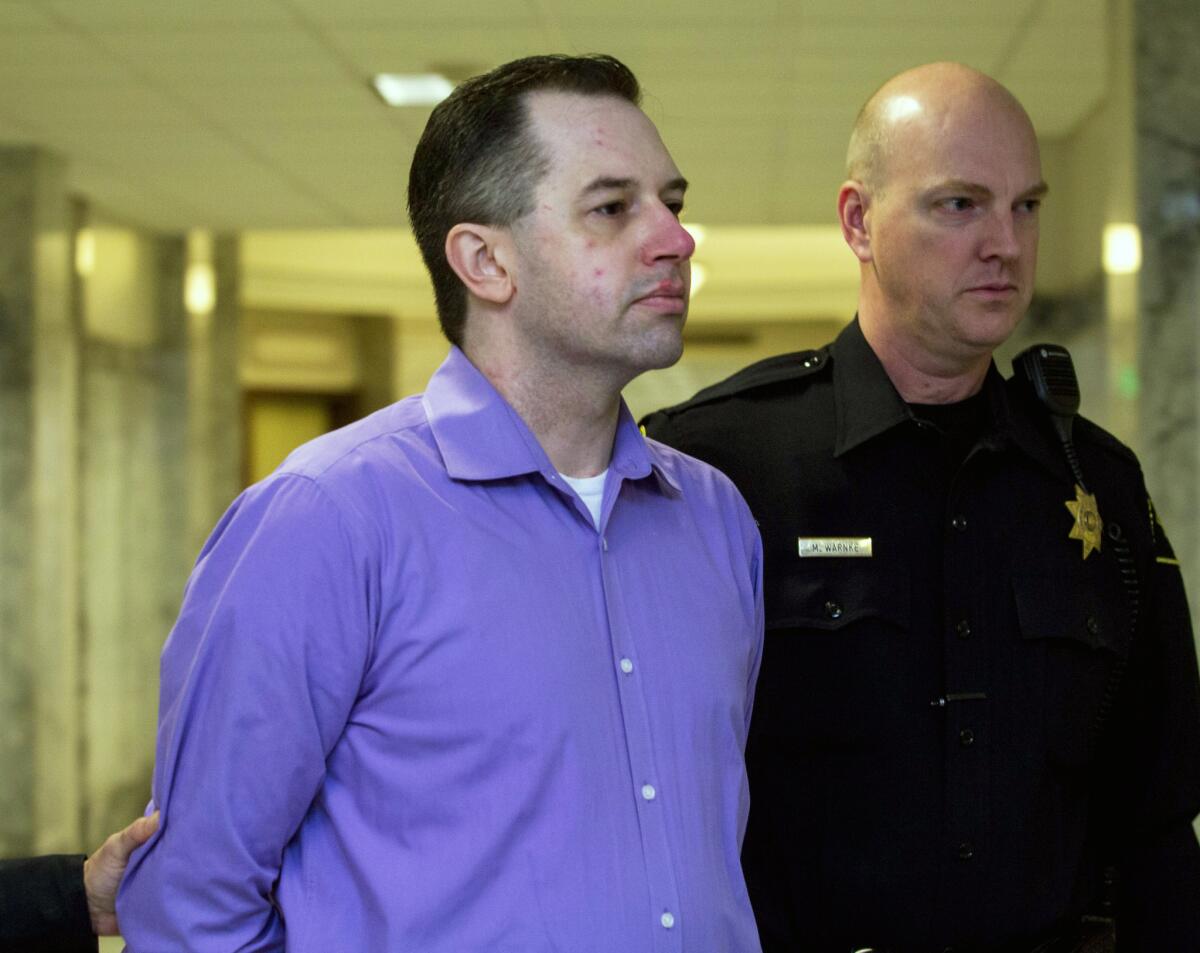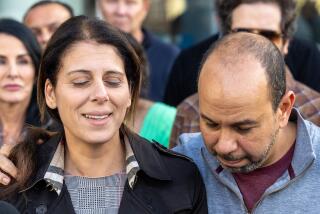Seattle-area prosecutor drops death penalty in 2007 murder case

In this Jan. 20, 2015, photo, an officer from the King County Jail escorts Joseph McEnroe into King County Superior Court in Seattle for opening statements in his aggravated murder trial. He was convicted and sentenced to life in prison.
A Seattle-area woman charged with killing six members of her family on Christmas Eve 2007 will not face the death penalty, a prosecutor said Wednesday.
King County prosecutor Dan Satterberg made the announcement months after the conviction of the woman’s boyfriend, who had also been charged with the slayings. Joseph McEnroe was sentenced in May to life in prison without possibility of parole.
“My decision today will reconcile the potential outcomes for these two defendants, and remove the death penalty option for the jury in Michele Anderson’s trial,” Satterberg said in a statement.
No plea bargain was reached, he said. “This is a unilateral action by my office, not dependent upon any action or agreement by defendant Anderson.”
Anderson faces six counts of aggravated murder in the first degree. The prosecutor’s office said it had originally sought the death penalty for both defendants because the case meets the legal standard, and because the homicides are among the worst crimes in King County.
Washington law requires that the jury be unanimous in recommending a death sentence. McEnroe’s jury deadlocked 8-4 in favor of death, which meant he received the lesser sentence.
That meant Anderson could have received the death penalty even though McEnroe did not, the prosecutor said, and McEnroe fired five of the six fatal shots.
“To proceed with the death penalty against defendant Anderson, in light of the sentence imposed on defendant McEnroe, would not be in the interest of justice,” Satterberg said.
Anderson is charged with killing her parents as well as her brother and his family. Prosecutors say Anderson and McEnroe first killed Wayne Anderson, 60, and Judy Anderson, 61, in the Andersons’ Carnation home as they prepared for the holiday. Then, prosecutors say, the couple hid the bodies and waited for Scott and Erica Anderson, both 32, and their two children, Olivia, 5, and Nathan, 3, and killed them too.
McEnroe testified at his trial that he participated in the killings because Anderson had coerced him, the Seattle Times reported. He also said he had decided to kill the children because witnessing the other killings would have destroyed them. “The only decent thing to do was to free them,” he said. “At least they didn’t suffer.”
In a jailhouse interview with the Seattle Times in 2008, Anderson said her family had made her “snap” by physically and emotionally abusing her for years. She said she deserved to die.
“I’m a different kind of person,” Anderson told the newspaper. “Life in prison is not enough punishment for me. I want the most severe punishment, which would be the death penalty. I think if I kill a bunch of people, I’m not sure I deserve to live. … I want to waive my trial.”
On Wednesday, King County’s chief public defender praised Satterberg’s decision not to seek a death sentence.
“Not only is it right for Ms. Anderson, it’s also right for our community,” Lorinda Youngcourt said, noting that the cost of pursuing the death penalty placed a burden on all counties.
“Death penalty cases are a huge drain on our resources – on the prosecutor’s resources, the public defender’s resources, the public’s resources,” she said in a statement. “It’s not how we should be spending our precious public resources.”
Anderson’s trial is scheduled to begin Sept. 28. It was to have been the last of three capital cases in King County this year, including McEnroe’s and that of Christopher Monfort, who was convicted in June of aggravated murder for killing a Seattle police officer. Monfort also was sentenced to life without possibility of parole.
Washington’s death penalty law dates from 1981, and nine men are on death row. But Gov. Jay Inslee issued a moratorium last year halting all executions while he is in office.
Washington state’s last execution was in 2010.
Twitter: @natalieschachar
More to Read
Start your day right
Sign up for Essential California for news, features and recommendations from the L.A. Times and beyond in your inbox six days a week.
You may occasionally receive promotional content from the Los Angeles Times.






